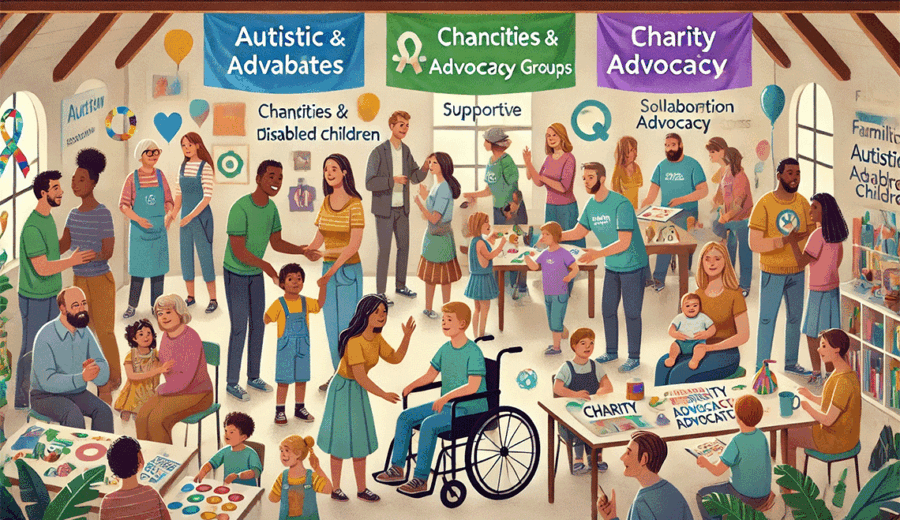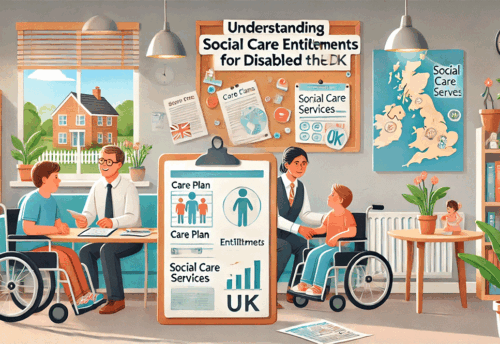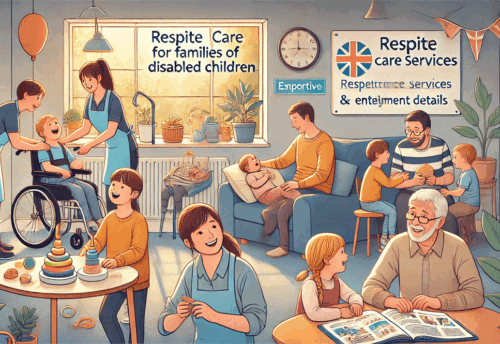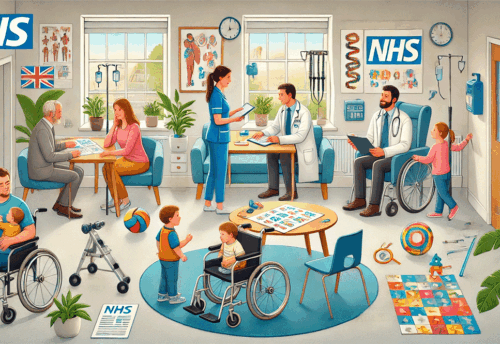
Charities and Advocacy Groups
Charities and Advocacy Groups: How They Support Families of Autistic and Disabled Children
Families of autistic and disabled children often face unique challenges that require specialized support. Charities and advocacy groups play a crucial role in providing assistance, resources, and a voice for these families. Here’s a detailed guide on how they can help:
1. What Charities and Advocacy Groups Do
These organizations focus on supporting families through:
- Emotional Support: Counseling, support groups, and community connections.
- Practical Assistance: Funding, respite care, and navigating healthcare or education systems.
- Advocacy: Campaigning for policies that improve lives and protect rights.
- Awareness: Educating the public to foster understanding and acceptance.
2. Key Services Provided
2.1 Information and Guidance
- Helplines and Online Resources: Offer tailored advice on managing disabilities.
- Workshops and Training: Help parents understand autism, disabilities, and strategies for support.
- Legal Support: Guidance on EHCPs, disability rights, and appealing decisions.
2.2 Financial Aid
- Grants: Charities like Family Fund provide funding for equipment, therapy, and holidays.
- Subsidized Services: Discounts on therapies, recreational activities, and educational resources.
- Emergency Funds: Help during unexpected financial strains.
2.3 Respite Care
- Daycare Programs: Short breaks for parents while children engage in enriching activities.
- Overnight and Residential Respite: Relief for families caring for children with complex needs.
2.4 Advocacy and Rights
- Policy Influence: Campaigns to secure better funding and services.
- Representation: Legal advocacy for families during disputes with local authorities or schools.
- Inclusion Efforts: Promoting accessible education, healthcare, and recreation.
2.5 Social Support
- Peer Groups: Opportunities to meet other parents and share experiences.
- Sibling Support Programs: Focused on siblings of autistic or disabled children to help them cope.
- Inclusive Events: Fun, safe environments for families to bond and network.
3. Prominent Charities in the UK
- National Autistic Society (NAS): Offers extensive resources, helplines, and advocacy for autism.
- Scope: Focuses on disability rights, employment support, and inclusive education.
- Family Fund: Provides financial aid to families with disabled children.
- Mencap: Supports people with learning disabilities and their families through advice and care services.
- Contact: Provides practical guidance and emotional support for SEND families.
4. Advocacy Groups and Campaigns
- Independent Parental Special Education Advice (IPSEA): Offers legal advice for EHCP and tribunal cases.
- Ambitious about Autism: Advocates for better autism services and policies.
- Disability Rights UK: Promotes independent living and policy change for disabled individuals.
5. How to Access These Services
- Online Directories: Local Offer websites list charities and advocacy groups.
- Referrals: GP, schools, or local authorities can connect you to relevant organizations.
- Events and Forums: Many groups host public events or webinars for awareness and engagement.
6. Benefits of Engaging with These Groups
- Reduced Isolation: Building connections with families facing similar challenges.
- Empowerment: Learning to advocate effectively for your child.
- Resource Access: Tools, therapies, and funding to improve your child’s quality of life.
- Policy Change: Contributing to movements that shape a better future.
7. Tips for Choosing the Right Organization
- Assess Your Needs: Focus on groups specializing in autism or specific disabilities.
- Check Credentials: Verify the organization’s reputation and success stories.
- Engage Actively: Attend workshops, utilize helplines, and participate in campaigns.
8. Fostering Community and Change
Charities and advocacy groups provide more than just services—they create a sense of belonging and foster societal change. Through their collective efforts, families find hope, guidance, and strength to navigate the challenges of raising autistic or disabled children.
Engage with these organizations to unlock valuable resources and build a brighter future for your child.





Leave a Reply